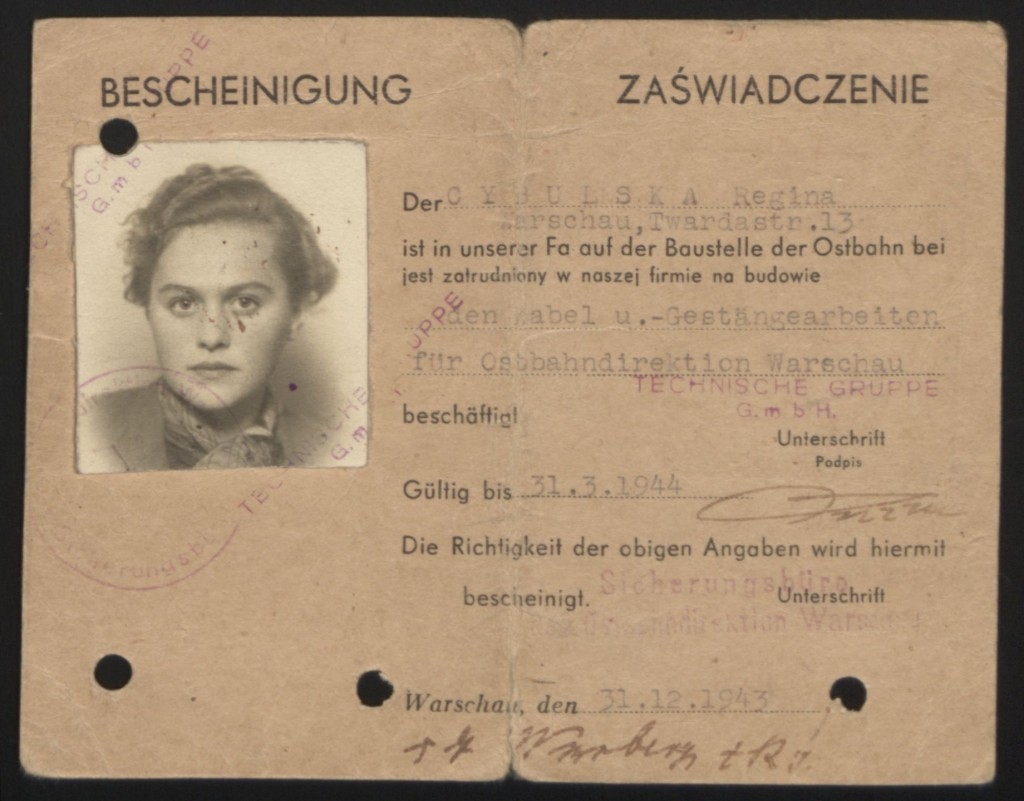
During World War II, people often used false identities and forged identity documents to evade Nazi authorities. False identities were essential for resistance fighters, aid workers, and Jews hoping to pass as non-Jews. Creating high-quality, convincing forgeries required dozens of people to work together clandestinely. It also required sophisticated photography and printing equipment. For Jews passing as non-Jews, acquiring forged documents could mean the difference between life and death.
During World War II, Ewa Sarnecka adopted the alias “Regina Cybulska” and used this false identity document to conduct clandestine activities. From 1942 to 1944, Ewa and her husband Tadeusz Sarnecki worked for the Council for Aid to Jews (codenamed “Żegota”). Żegota was a clandestine rescue organization of Poles and Jews that coordinated efforts to save Jews from Nazi persecution and murder. The Sarneckis served as couriers for the Zamość and Lublin branches of Żegota. They traveled to selected forced labor camps in the region, including Piotrków Trybunalski, Radom, and Starachowice. The Sarneckis secretly delivered money, documents, food, medicine, and letters to the Jews imprisoned there. On several occasions, they were even able to smuggle individuals out of the camps. Both Ewa and Tadeusz survived the war.
We would like to thank Crown Family Philanthropies, Abe and Ida Cooper Foundation, the Claims Conference, EVZ, and BMF for supporting the ongoing work to create content and resources for the Holocaust Encyclopedia. View the list of donor acknowledgement.